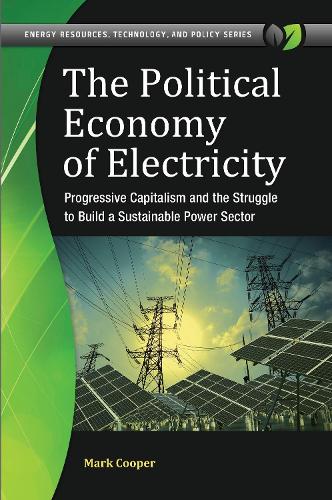
The Political Economy of Electricity: Progressive Capitalism and the Struggle to Build a Sustainable Power Sector
(Hardback)
Publishing Details
The Political Economy of Electricity: Progressive Capitalism and the Struggle to Build a Sustainable Power Sector
By (Author) Mark Cooper
Bloomsbury Publishing PLC
Praeger Publishers Inc
24th April 2017
United States
Classifications
Tertiary Education
Non Fiction
333.7932
Physical Properties
Hardback
472
Width 156mm, Height 235mm
907g
Description
Providing critical insights that will interest readers ranging from economists to environmentalists, policymakers, and politicians, this book analyzes the economics and technology trends involved in the dilemma of decarbonization and addresses why aggressive policy is required in a capitalist political economy to create a sea change away from fossil fuels. The environmental damage across the globe is a result of the success of capitalist industrialism250 years of carbon pollution resulting from consumption of fossil fuels to drive the economy and the worldwide aspiration to ever-increasing levels of economic development. But capitalism has also produced the tools to solve the problems it has created in the form of a technological revolution in low-carbon renewables, distributed resources, and intelligent systems to integrate supply and demand. This book comprehensively examines the political economy of electricity and analyzes the challenge of transforming today's electricity sector to meet the dual goals of decarbonization and development expressed in the Paris Agreement. Author Mark Cooper defines the dilemma of development and decarbonization as the great challenge facing the electricity industry and documents how the economic resources costs of a 100 percent-renewable portfolio has declined to the point that decarbonization can pay for itself, making the low-carbon renewable technologies that enable desired environmental and public-health benefits an easy sell. He identifies the substantial benefit of increasing use of information, communications, and advanced control technologies; shows how targeted innovation could speed the transition by a decade or two and lower the overall cost of the transition by as much as half; and explains why the flexible, multi-stakeholder approach of the Paris Agreement is the correct approach.
Author Bio
Mark Cooper is Senior Fellow for Economic Analysis at the Institute for Energy and the Environment at Vermont Law School.
